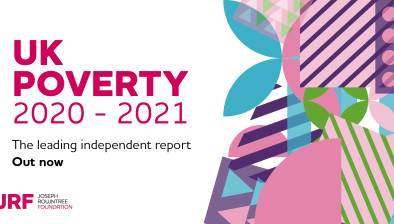Working poor struggling to make ends meet as austerity hits, finds JRF

A new report has called for an increase in the supply of affordable homes to aid the struggles of vulnerable and working poor people to make ends meet as austerity continues to hit.
Independent research published today by the Joseph Rowntree Foundation (JRF) has revealed that the cost of a decent standard of living, as defined by the public, has stopped rising for the first time since the recession began. However, the gap between people’s incomes and the amount they need to cover their essential costs has widened dramatically since 2008.
A Minimum Income Standard (MIS) for the UK, funded by JRF is calculated annually by Loughborough University’s Centre for Research in Social Policy. This year’s analysis finds that for the first time since 2008, the amount families need to earn to reach a minimum, socially acceptable standard of living has fallen.
Low and negative inflation in 2015 has meant the cost of what you need to meet the MIS remained the same. Additional factors have also helped to narrow the gap between earnings and outgoings for many low income households in the last year, bringing welcome respite.
But the budget gap between the incomes of low income families and the cost of a decent standard of living is still much wider than before the recession began, both for those earning the National Minimum Wage (NMW) and those reliant on out of work benefits.
The report found that single people are falling short of what is considered to be ‘an acceptable living standard’ by £52 per week, a lone parent with one child is falling short by £38 and a couple with two children earning £74 less than they need. Each of these figures represents a large increase when compared to the situation in 2008.
The situation is even worse amongst people who rely on social security – with single people £109 short of an acceptable living standard, while lone parents with one child are £117 short and couples with two children are as much as £196 short.
Today’s report also identifies three key policies to narrow the gap between wages and living costs – including taking action to boost productivity and to create more and better jobs for people on low incomes, encouraging employers to pay the Living Wage and to increase the supply of affordable homes.
JRF said addressing these issues will help reduce the need for people on low incomes to rely so heavily on tax credits and housing benefit to maintain a decent living standard.
Julia Unwin, JRF chief executive, said: “After seven years of declining living standards, the pause in rising costs is a very welcome respite. But many low income households are still much worse off than in 2008, leaving them struggling to make ends meet and reliant on benefits to top up their incomes.
“A couple with two children who each earn the minimum wage faces a shortfall of almost £4,000 a year between their incomes and what the public say they need for a minimum standard of living. We need to see action to raise wages, build more genuinely affordable homes and tackle the UK’s low productivity to help people get on at work.”
Donald Hirsch, director of the Centre for Research in Social Policy, Loughborough University and author of the report, added: “Near-zero inflation is a particularly welcome relief for families whose income relies partly on benefits, which are no longer increased automatically in line with prices. But modest inflation is expected to return. Even though earnings are forecast to grow healthily in the next few years, rising prices will prevent low earners from becoming better off if their tax credits are frozen - and more so if threats to cut them are implemented in the forthcoming Budget.”








